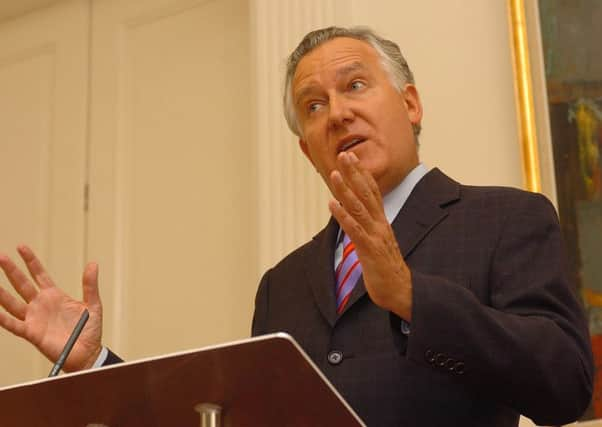The soul of a nation is seen in how we treat criminals


The Act provides that the circumstances in which an individual became a victim may be taken into account in awarding a pension and specific regulations for the operation of the scheme are to be set by the government.
There has been considerable public concern expressed that the Act omits Lord Hain’s original phrase “through no fault of their own”, which would have excluded claimants who were injured by themselves in their own unlawful acts, such as when planting a bomb in a public place.
Advertisement
Hide AdAdvertisement
Hide AdIt was explained that the omission was on the ground that the phrase was not sufficiently clear from a legal point of view, but the intention behind Lord Hain’s omitted phrase was nonetheless clearly expressed and reiterated on behalf of the government.
The Victims and Survivors (Northern Ireland) Order 2006 defines a victim and survivor as someone injured as a result of “a conflict-related incident”, someone who provides a substantial amount of care on a regular basis for such an individual or someone bereaved as a result of such an incident, but the forthcoming regulations regarding the pension are now expected to diverge from this and introduce a ‘no fault’ requirement.
However, in a recent interview in a Forward Together Podcast from the Holywell Trust, former Church of Ireland Primate Lord Eames took the view that to say that only an innocent person is a genuine victim is to “sink back into the orange and green”, and pointed out that “we were all victims of a massive disintegration of society”. He said that victims are people who suffered “because of the enormity of what the Troubles did”.
On the subject of ex-paramilitaries apologising for their actions, Lord Eames dismissed this by querying how an apology should be defined and by asking whether it would mean that a republican activist’s apologising for what he or she did would question that individual’s “integrity in being involved in the first place”, or what apologising would say about a loyalist paramilitary’s involvement.
Advertisement
Hide AdAdvertisement
Hide AdAsked to comment, Lord Eames told me he felt the government had “much more thinking” to do on the definition of a victim and that he needed a reply to a query he made to NIO minister Lord Duncan about a possible UK-wide definition.
He also recalled that he had often said that the whole of society had suffered the effects of the Troubles, adding that there is too often confusion about, and misuse of, words like ‘victims’.
By contrast to Lord Eames’ Forward Together remarks, in its September 2018 response to the Northern Ireland Office’s consultation paper, ‘Addressing the Legacy of Northern Ireland’s Past’, the Church and Society Commission of the Church of Ireland pointed out: “There is great pain, concern and anxiety that the legal definition of victim makes no differentiation or distinction between the perpetrators and those innocent individuals who were affected by the actions of others. This needs to be addressed.”
The group also called on all involved in the Troubles “to take responsibility and ownership for wrongdoings” and urged “heartfelt repentance” for wrongs done.
Advertisement
Hide AdAdvertisement
Hide AdWhen former Secretary of State Karen Bradley asked Boris Johnson in parliament, at his first time at the despatch box as prime minister, if he would commit to delivering for “those who were severely physically and psychologically disabled in the Troubles, through no fault of their own”, the PM replied that she was “right to insist on the proper way of sorting out some of these very difficult legacy issues”.
It is elementary ethics that a person who was killed or injured by an unlawful act isn’t to be seen in a morally equivalent way to a person killed or injured while carrying out the attack. That is one reason why the Church of Ireland commission’s approach was entirely right.
Indeed, I recall that back in January 2015, when I was editor of the Church of Ireland Gazette, the SDLP’s then Justice spokesperson, Alban Maginness, told me that to regard perpetrators as victims “is incompatible with the concept of being a victim”.
It was the great Russian writer, Fyodor Dostoyevsky, who said: “The degree of civilisation in a society is revealed by entering its prisons.” Those words were subsequently echoed by Winston Churchill who spoke of a society’s treatment of those who commit crime as “the sign and proof of the living virtue in it”.
Advertisement
Hide AdAdvertisement
Hide AdHow those who break the law are treated by the rest of society does reveal something very important about the soul of a nation.
Further to this point, Lord Hain made a careful observation in the House of Lords on 17 July about the victims’ pension: “I said that we are a civilised society and we do not turn people away from services that they need provided; for example, by the NHS and the Victims and Survivors Service in Northern Ireland. However, this pension is not a service; it is a recognition of the horrific harm done to men and women through no fault of their own.”
It was an important clarification.